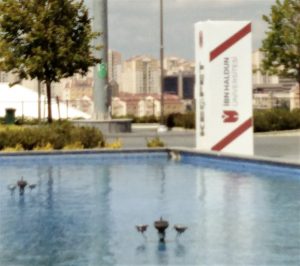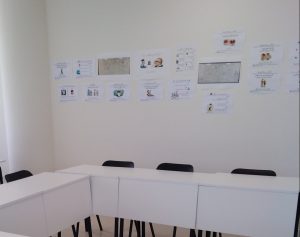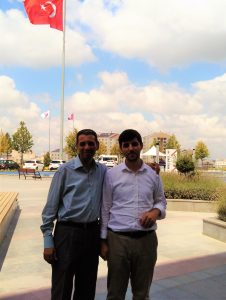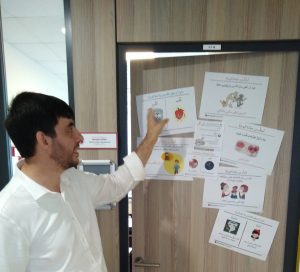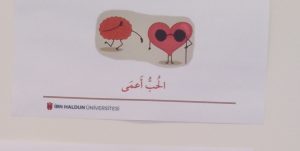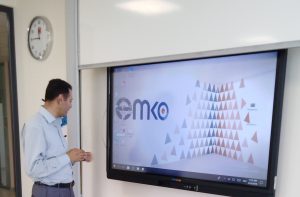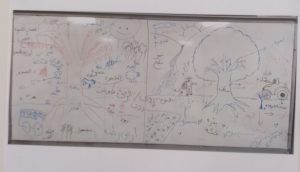With deep gratitude to Liebentritt Faculty Development Award, I was able to visit a rising intensive Arabic program in Istanbul Turkey, rooted within a vibrant city rich in centuries old religious, cultural, and linguistic heritage. This blog shares a few insights about the Arabic Program at Ibn Haldun University; a rigorous program for Arabic language and cultural studies with immersion experiences. With attention to recent demographic changes due to Syrian refugees and immigrants in Istanbul, the program is well situated to offer mini immersion experiences modeling that of Arabic neighborhoods.
I’m thankful to Professor Ercument Asil, History Department at Ibn Haldun for invitation and connections to the Arabic program. I’m also indebted to Dr. Mudar Faris , Director, and all the wonderful Arabic Faculty, Dr. Ihab and Dr. Mousab for their generosity, hospitality and kind accommodations during my visit.
Arabic classes meet for 23 class a week, with about 10 students each ranging from novice to advance. Assigned weekly meetings with teachers for integrative assessment and reviews are scheduled throughout the semester and students are expected to reach Low Advanced on ACTFL standards within 9 months. Curriculum and instructions are reviewed and implemented with attention to students’ needs and proficiency expectations of the program, following research on best linguistic practices as befit the program’s needs. Due to the competitiveness of the program, students who are accepted in the program receive a full scholarship for fees, tuition, and living arrangements.
Arabic learners pledge to speak Arabic only. In fact, Ibn Haldun is one of few universities in which students are expected to graduate with competency in 3 languages (Arabic ,Turkish and English) with a minimum of Low Advanced in foreign language level. Beautifully, teachers and students bond like a family in support of each other. The teachers speak proudly of their loving care and attention to students’ emotional, linguistic, cultural, and social development.
Teachers are active in professional development opportunities and benefit from the university’s support. The unique context of Istanbul as a deeply rooted city in Islamic heritage, makes it more fascinating to students to nurture learning outside the classroom contexts; from mosques and libraries, to old markets and bazaars, a nexus of ever changing worlds.
Stay tuned for more on Istanbul in the next blog inshaa’Allah!
shukran
ustaadha sawsan

